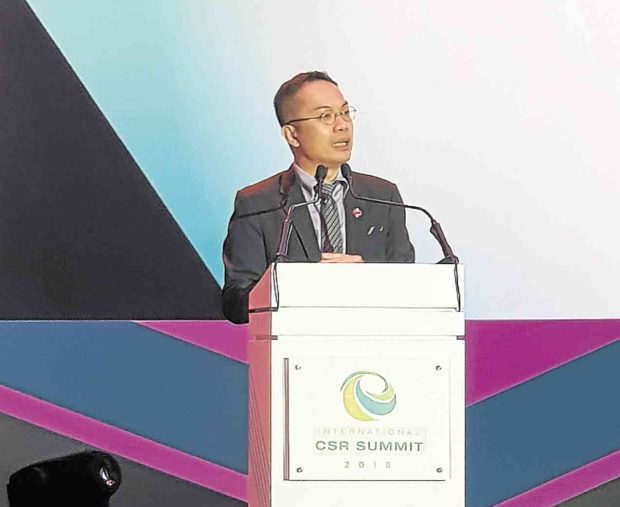Promoting entrepreneurship will advance the goal of sustainability but it has to be a collective effort.
At the recent International CSR Summit 2018, Dato’ William Ng, president of Enterprise Asia, said “to promote sustainability, the government, private sector and the public should invest in entrepreneurship.”
Enterprise Asia, Asia’s leading association for responsible entrepreneurship, organizes the annual meeting. This year’s theme was “Building a Shared Future.”
Ng noted an “explosion of entrepreneurship” but progress remained “far from being equitable.” There remained, in particular, gaps in incomes between men and women.
Not enough had been done to allow fair competition and there was a failure to democratize entrepreneurship, he added.
Ng pointed out that entrepreneurs gave more to charitable causes than those who inherited their wealth. Entrepreneurship, he said, could contribute to making an equitable and just society.
Ng stressed that chief executive officers should play greater roles in corporate social responsibility initiatives that promoted sustainability, wherein resources are used in such a way that these will not be depleted or permanently damaged.
New models for collaboration have to be developed to tackle increasingly complex sustainability challenges, Ng said.
“It is time to step up and take responsibility for sustainability, to create a sustainable future for society as whole,” he said.
Assistant Secretary Felicitas Agoncillo-Reyes of the Department of Trade and Industry said there were inclusive business growth models that promoted sustainable entrepreneurship.
In these models, the poor or those at the bottom of the pyramid were not considered beneficiaries but partners.
Reyes said the business sector had a strategic role in developing transformational solutions, such as CSR programs, to help reduce poverty. The Philippines, she said, aimed to reduce the country’s poverty incidence from 25 to 14 percent by 2022.
Cheryl Maley, president and managing director of Novartis Philippines, said her company was focused on giving back more to society and that the aim was to achieve not just equality but also equity.
The company also wanted to be a leader and/or catalyst in sustainability and had adopted various strategies toward this end. It aimed, for instance, for plastic and carbon neutrality and had taken steps toward sustainable water use and other initiatives to help slow climate change.
Laetitia Lienart, vice president of corporate citizenship for Asia Pacific of Credit Suisse, said the company was committed to advancing sustainable economic growth.
Reese Fernandez-Ruiz, meanwhile, said beneficiaries of her Rags2Riches social enterprise were included in the design and implementation of their business model.
Nisha Meneses of Grab said the transport company had partnered with governments and other sectors in social impact initiatives, like road and pedestrian safety.
In the panel discussion, Taiwan’s Dr. Niven Huang emphasized that businesses had no choice but to integrate financial goals with social and environmental objectives for sustainable development.
“Business cannot succeed in a world that fails,” he pointed out. —CONTRIBUTED


